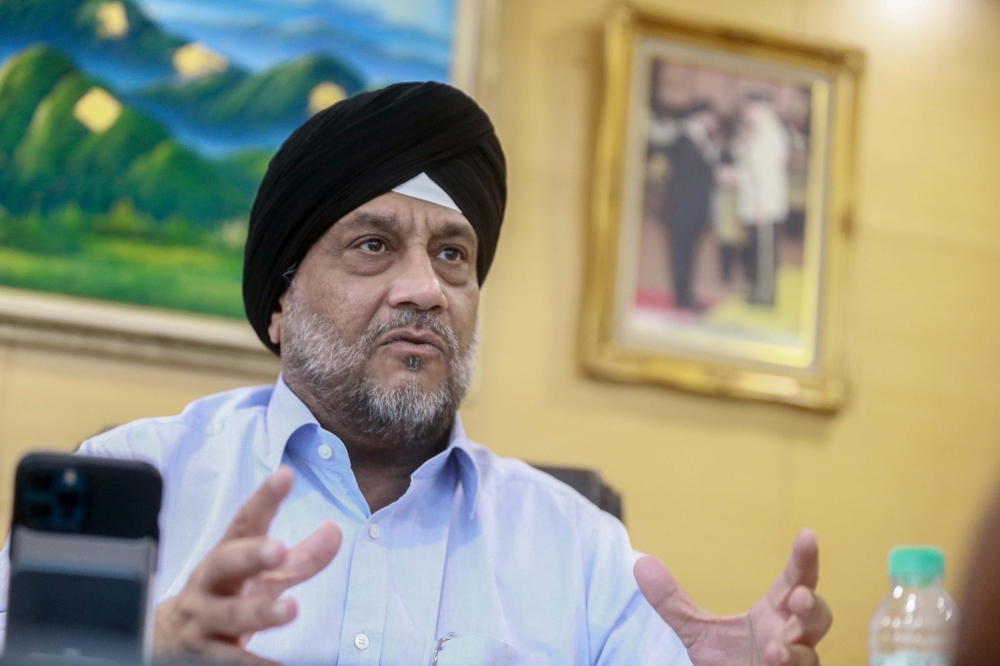

KUALA LUMPUR, Oct 8 — As the Anwar government gears up for Budget 2025, tax expert Datuk Harjit Singh Sidhu, CEO of HSS Advisory, emphasises the need for a stronger focus on the digital economy and youth employment.
He believes these priorities, along with crucial tax reforms, are essential to drive Malaysia’s economic growth and ensure the country is prepared for the future global headwinds.
Boosting the digital economy
Harjit has long advocated for digitalisation. For Budget 2025, he highlights the importance of Accelerated Capital Allowances (ACA) as a tax incentive for small and medium-sized enterprises (SMEs).
These incentives encourage businesses to invest in digital technologies without facing heavy financial burdens.
He suggests that the budget should build upon existing legislation allowing SMEs to claim ACA for digitalisation-related expenses without asset value limitations.
Currently, non-SMEs face a cap of RM20,000 annually, which Harjit believes should be reconsidered for high-value digital tools.
"The lifespan of the hardware and software businesses use is short and needs changing or upgrading in a few years,” Harjit told Malay Mail in a recent interview.
"For SMEs, ACA allows them to claim their investments in IT equipment, such as computers and software, within two years. This makes investing in technology far more appealing because businesses can recover costs quickly.”
Harjit points out that Malaysia is advancing rapidly into the digital age and is actively seeking substantial digital investments.
With the right incentives, the country can attract foreign investors looking to capitalise on its growing digital economy.
Digital Minister Gobind Singh Deo announced in August that Malaysia’s digital investments reached RM66.2 billion in the first half of 2024, generating 25,498 jobs, which surpassed the 22,258 jobs created in 2023.
The Malaysia Digital Economy Corporation (MDEC) facilitated export opportunities worth over RM1.93 billion involving 228 companies from 11 countries, including Indonesia, the Philippines, and the United Kingdom.
This represents an increase of over 43 per cent from the RM1.35 billion generated in the first half of 2023.
To further support digitalisation, Harjit stressed the importance of extending ACA to cover pre-commencement expenses for businesses setting up digital infrastructure.
He also supports double deductions for companies upgrading their software and for training employees in ICT-related skills, especially for e-invoicing and digital implementation programs.
Personal tax relief for IT purchases
Harjit is advocating for an increase in personal tax relief for individuals purchasing digital devices like computers and smartphones.
Currently capped at RM2,500, he argues this relief is insufficient given rising technology costs. He proposes increasing the relief to RM5,000 or even RM10,000.
"Individuals need to be incentivised to embrace the digital world. By raising personal tax relief for IT purchases, we can ensure more Malaysians are equipped with the necessary tools to participate in the digital economy,” he said.
Youth employment in the digital sector
A pressing challenge for Budget 2025, according to Harjit, is creating job opportunities for young graduates in the digital economy.
He highlights a mismatch between the skills of graduates and the jobs available, particularly in technology.
"We have so many graduates, but there’s a mismatch between their training and the available jobs.
"The government needs to focus on creating more opportunities for young people, especially in the digital sector, where the future lies,” Harjit said.
He called for collaboration among the Digital, Human Resources, and Education Ministries to better prepare graduates for the job market and increase employment opportunities in the tech sector.
"The ministries are working in silos, which is a problem. If they pool their resources and data, they’ll be able to create better opportunities for young people, especially in the digital economy,” he said.
The Digital Ministry is taking steps to address employment challenges for IT and computer engineering graduates through partnerships with industry leaders and educational institutions.
GST for revenue stability
While focusing on digitalisation and youth employment, Harjit said it is hard to run away from the goods and services tax (GST) as a vital tool for Malaysia’s financial stability.
He argues that GST, as a consumption-based tax, generates immediate revenue, unlike e-invoicing, which may take years to yield returns.
"GST generates immediate revenue because it’s based on consumption. If it’s implemented today, the government starts collecting tax the same day,” Harjit said.
He suggests a lower GST rate of 4 per cent, compared to the original 6 per cent, to ease the transition and lessen the financial burden on Malaysians.
Fair taxation for foreigners and locals
Harjit advocates for a standard rating model for GST, similar to Singapore’s, to ensure all taxpayers, including foreign workers, contribute to the system.
"We have about five to six million foreigners in Malaysia, and by taxing across the board, including them, we could generate an additional RM1 billion to RM2 billion in revenue annually,” he said.
He stressed the need for better tax enforcement, targeting undeclared income from businesses and individuals operating "under the radar”.
Harjit’s suggestion is that agencies like the Inland Revenue Board (LHDN) and the Road Transport Department (JPJ) should collaborate to share data on high-value transactions.
"It’s not about taxing the same person repeatedly. We need to go after those who aren’t declaring their income,” he said,
He adds that the government should provide relief to lower-income (B40) and middle-income (M40) groups to ensure GST does not disproportionately affect vulnerable Malaysians.
Prime Minister Datuk Seri Anwar Ibrahim, who is also finance minister, is expected to table Budget 2025 in Parliament on October 18.
You May Also Like

